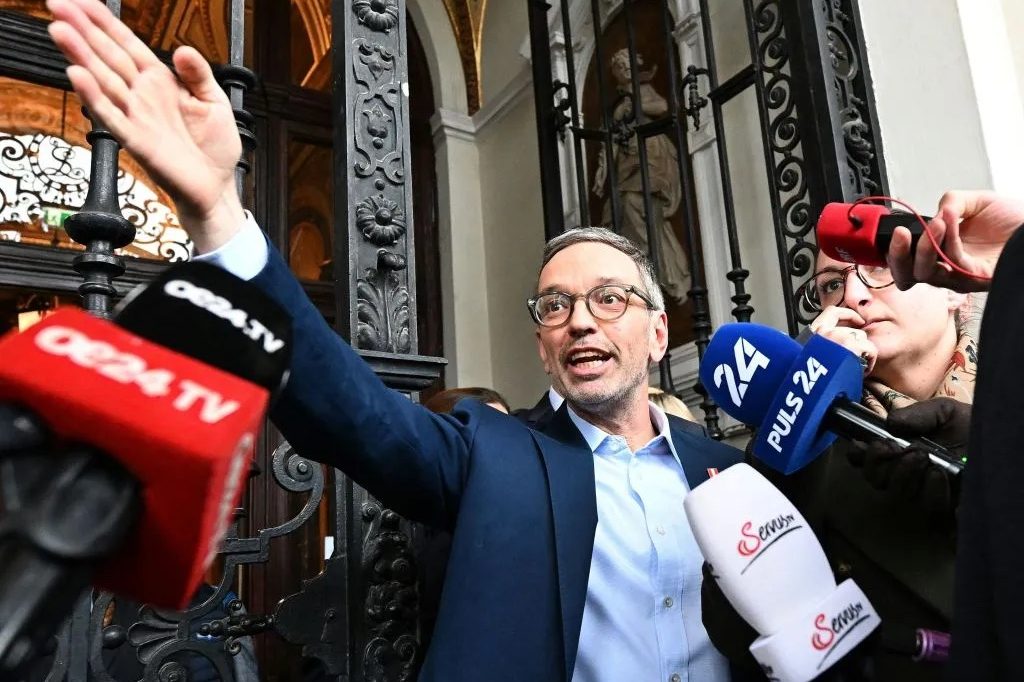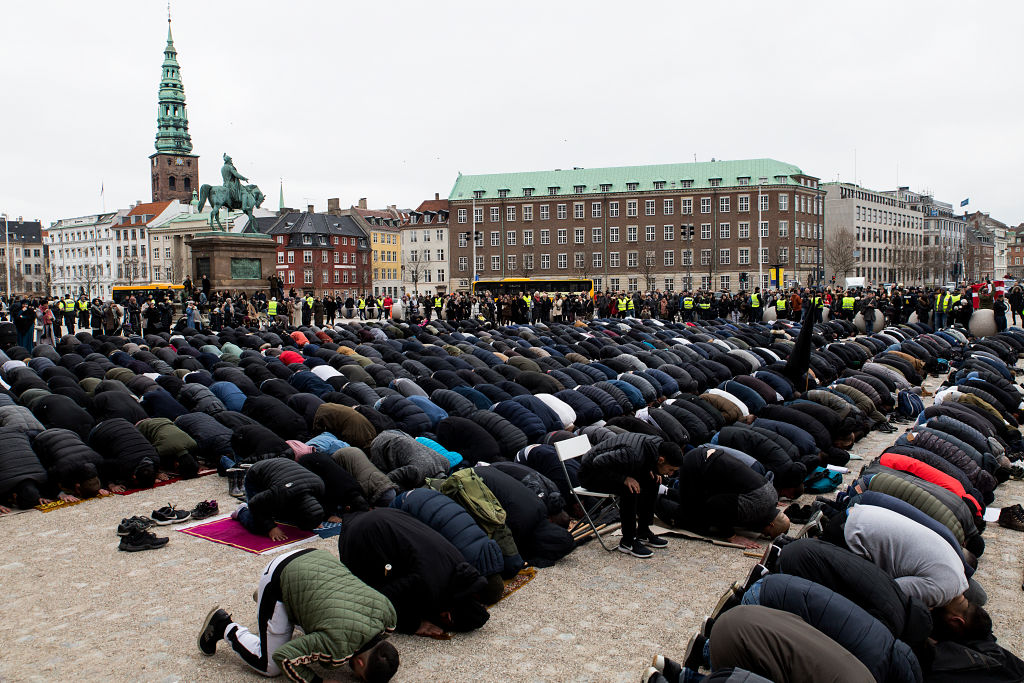Austria’s mainstream politicians are combining to ensure that the winners of last month’s general elections, the far-right Freedom Party (FPO) are kept firmly out of power.
The Alpine republic’s president, Alexander Van Den Bellen — aligned with the Green Party — has invited the current chancellor, Karl Nehammer, whose center-right People’s Party (OVP) came second in the elections, to form a coalition explicitly excluding the FPO, which topped the polls with 29 percent, running on an anti-immigration, pro-Putin platform.
Austria is the latest European “domino” to propel a populist radical right party to the forefront of politics after the rise of the AfD in neighboring Germany. Similar parties are already in government in Italy, where Giorgia Meloni’s Fratelli d’Italia leads a right-wing coalition, and in Sweden and the Netherlands where Geert Wilders’s anti-Islam Party of Freedom (PVV) also forms part of the ruling coalition.
But just as Wilders proved too combative a figure for the Dutch establishment to become prime minister, so the FPO leader Herbert Kickl is too controversial for Austria’s center and left-wing parties to join with in a coalition. The OVP, the social democratic SPO, the Greens, and the liberal NEOS party have all ruled out getting into bed with the FPO under Kickl’s leadership.
Their reasons are partly personal and partly historical. Kickl himself is a combative figure with a record of making controversial comments — and following them up with equally divisive actions. As a hardline interior minister in a previous OVP/FPO coalition government he renamed hostels housing immigrants as “departure centers,” and he ordered a police raid on Austria’s state intelligence agency — a move later ruled illegal by a court.
During the Covid pandemic, Kickl campaigned against mass vaccinations and lockdowns and he fiercely opposes Austria supplying arms or aiding Ukraine in resisting the Russian invasion. Though deplored by the Austrian establishment, such policies proved popular with large swathes of the population, and propelled the FPO to top place in the polls — its best ever achievement.
Unlike the AfD and other fellow right-wing populists elsewhere in Europe, the FPO is not a new pop-up party, but is deeply rooted in the Austrian political system. It was founded after world war two by former members of the Nazi party, and swung uneasily for decades between neo-Nazi nationalism and centrist liberalism.
In the 1980s and 1990s it was led by a charismatic young chief, Jorg Haider, who challenged the cosy duopoly of the OVP and SPO with a stridently anti-immigration message. This went down well with many voters, and in 2000 the FPO went into government as junior partners to the OVP.
The EU, however, were horrified by Haider’s nationalism and alleged xenophobia, and successfully pressured the Austrians to keep him out of the government. Such pressures split the FPO, always prone to vicious infighting, and Haider quit the party to found his own breakaway movement.
In 2008, Haider was killed in a car crash, but a new FPO leader, Heinz-Christian Strache, restored the party’s electoral fortunes with a similar anti-migration message to Haider, and in 2017 the FPO again became the junior partner to the OVP in a new coalition. Strache was appointed vice-chancellor to the OVP’s youthful Chancellor Sebastian Kurz.
The success was short lived. In 2020 Strache was involved in a corruption scandal known as “Ibiza-gate,” when he resigned after he was recorded apparently promising favors to a Russian woman while on the Spanish holiday island. The following year Kurz was also discredited in a scandal and resigned.
For the third time the FPO’s fortunes were again rescued with another leader preaching an anti-migration, anti-Islamist message. The new leader, Herbert Kickl, a former speech writer to Haider, unashamedly rode the tide of right-wing revolt against mass migration and woke cultural wars that has convulsed politics across Europe.
His campaign culminated in last month’s election in which the FPO topped the poll but failed to obtain an absolute 50 percent majority. Kickl faced a united refusal by all the other parties to go into coalition with him, with Nehammer, his likeliest prospective coalition partner, denouncing him as a danger to Austria.
With some justice, Kickl has accused the parties who have spurned him of being a “coalition of losers” who are denying democracy and defying the will of the 29 percent who voted for him.
Nehammer is now likely to form a “grand coalition” with the OVP’s traditional left-wing rivals, the SPO, but whether these old parties will be able to resist the forces behind the FPO’s relentless rise is doubtful.
This article was originally published on The Spectator’s UK website.


























Leave a Reply